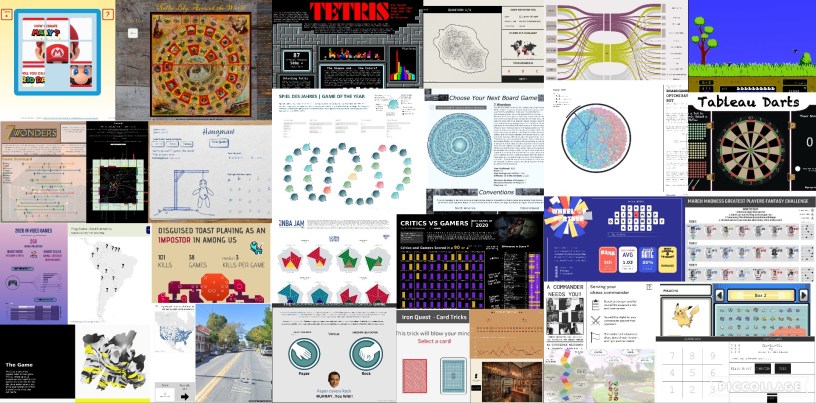In March 2021, I had the pleasure of collaborating with Kevin Flerlage to host a games-themed #IronQuest round. This has been a frequently requested topic and Kevin was the perfect co-host given his passion for games and experience of building games in Tableau. Unlike other Iron Quest rounds, participants had the option of visualising data about games, or even attempt to build a workable game in Tableau!
We received a total of 31 submissions for this round and welcomed 12 first-time participants to the project this month! As always, it was fantastic to see the diverse range of topics covered and the creativity shown through the entries. This month was particularly impressive as we saw some participants create real games in Tableau, both by recreating classic games or designing ones of their own.
We were lucky enough to have one entry featured as ‘Viz of the Day’ this month too! Congratulations to Mark Corbridge who built a fantastic ‘Boardgame Optimisation Bot’ which can be used to recommend board games with similar characteristics (rating, complexity, no. of players) to the one selected. Not only does this viz look great, but it is also genuinely useful!
Click the image to view the interactive version on Tableau Public.
Feedback
Kevin and I provided feedback to everyone who requested it during our conversation which has since been posted on YouTube.
You may recall we made a slight change to our review process at the start of the year based on feedback from project participants. We now typically offer two types of feedback; general and Iron Viz style. The Iron Viz style feedback takes into account the Iron Viz scoring criteria areas (Design, Storytelling and Analysis) and focuses on what you might need to adjust or improve to strengthen your viz in an Iron Viz feeder competition. However, given this month was slightly different and some participants built games, we didn’t offer Iron Viz style feedback. We reviewed the games on criteria such as ease of use, overall design, and playability.
You can listen to our feedback here:
We reviewed the vizzes in alphabetical order (by authors first name) to make it easier for you to jump straight to the feedback for your viz.
In this video we cover vizzes by the following authors:
Alex T. Williams
Andrew Starr
Ant Pulley
Jagruthi
Lilla Rasztik
Lisa Rapp
Lisa Trescott
Mark Corbridge
Márton Balla
Nicole Klassen
Robert William Clark
Roy Wang
Tim Beard
Wendy Shijia
Yash Sakhuja
Viz Highlights
Here are a few of our favourite entries this month. We’ve intentionally picked some visualisations that you may have otherwise missed.
Click on the viz images to view the originals on Tableau Public.
Playable Games
Ant Pulley – Happy Mario Day!
To celebrate Mario Day on March 10th (MAR10), Ant created a classic sliding puzzle game featuring a scrambled picture of Mario himself. In a physical form, a sliding puzzle game challenges a player to slide (frequently flat) pieces along certain routes (usually on a board) to establish a complete picture. This version in Tableau works in the same way. The player can only move a single tile at a time, moving them from left to right or up and down. The game tracks the number of turns; the object being to complete the puzzle in as few turns as possible.
Ant did such a great job in building this game in Tableau! The design is simple, yet effective and provides the player with just the right amount of information needed to play. It’s executed so well, it’s easy to forget that this was built in Tableau!
Mateusz Karmalski – Duck Hunt
Duck Hunt is a 1984 light gun shooter video game developed and published by Nintendo for the Nintendo Entertainment System (NES) video game console. The objective of Duck Hunt is to shoot moving targets (ducks) on the screen in mid-flight. In the original game, players would point ‘zappers’ (a special light gun) at the television screen to shoot the targets but here, Mateusz created a fully working version that can be played in Tableau with a mouse!
The design and functionality are nearly identical to the original! Players can even adjust the duck size and opacity for an additional challenge.


Matthew Armstrong – Escape the Library
Matthew took the game theme to new levels by building an Escape Room in Tableau! In this game you assume the role of a detective and working alongside a trusty sidekick, you are investigating the disappearance of a priceless painting from the private collection of a local merchant. You have whittled it down to two suspects and your latest inquiry provides you evidence to suggest that “M” is the perpetrator. You meet your sidekick at “M’s” residence and wait for him in the library. However, you are locked in with only a letter and a few clues to help you escape in time before “M” flees for good!
Matthew considered everything when building this game and it shows! Players must crack the clues to proceed to the next step and ultimately ‘escape’ the library. This was all done inside Tableau and goes to show that Tableau is far more than just a BI tool! In terms of functionality, the game relies on a series of parameters to determine whether a player can proceed to the next step. On Twitter, Matthew thanked Marc Reid for his ‘Drawing on Dashboards’ blog post and viz for inspiring the mechanics for a few of the puzzles. I highly encourage you to check out these fantastic resources! They will completely change the way you think about parameters.
Can you escape the library? Click on the image below to give it a try for yourself!
Wendy Shijia – Island Shape Quiz
How well do you know your islands?
In this ultimate test of geography, players are presented with simplified terrain maps of islands from around the world and are asked to select their approximate location from one of three options. Some additional information such as area, population and language are also provided. While players don’t need to name the islands in question, familiarity with island shape and key facts are helpful.
This is a fun game that is well-presented with a simple design, minimal colours and effective, click-through functionality. I love how Wendy used Mapbox to create custom maps for each of the islands for both on the homepage and the question pages. The use of a topographic map helps to present the player with a few more clues about the islands without giving too much away.
Give it a try and see how you get on!

Vizzes About Games
Lisa Rapp – Spiel des Jahres / Game of the Year
Spiel des Jahres (‘Game of the Year’) is an award for board and card games, created in 1978 with the purpose of rewarding family-friendly game design, and promoting excellent games in the German market. In this viz, Lisa explores all 42 past winners of the award, from 1978 to 2020.
In her accompanying blog post, Lisa mentions her inspiration for this viz was Giorgia Lupi. Lupi is an award-winning visual designer and co-author of the book “Dear Data”. She is recognised for her approach to visual encoding; the practice of using shapes and patterns to represent data in a visual form. In this viz, Lisa uses Tableau map layers to show the relevant encoding for each year and game in the viz. I highly encourage you to read the blog post and learn more about this technique.
I’m a big fan of Lupi’s work and Lisa applied the technique perfectly here. She even designed the layout to look like a board game! I imagine this viz would be particularly useful to anyone looking for new board game inspiration. Kevin and I reviewed this viz during our feedback call and one thing we noted was the absence of any summary statistics. While the main visual is great, the encoding can be difficult to consume at a high level, especially when trying to determine overall themes. To overcome this, we suggested Lisa add a few charts to show aggregated, high-level metrics on the types of games that have won the ‘ Spiel des Jahres’ award over the years. Lisa took on our feedback and updated her viz with the addition of a few summary charts. I think the new version looks great!
Both vizzes are shown below.
Initial Entry:
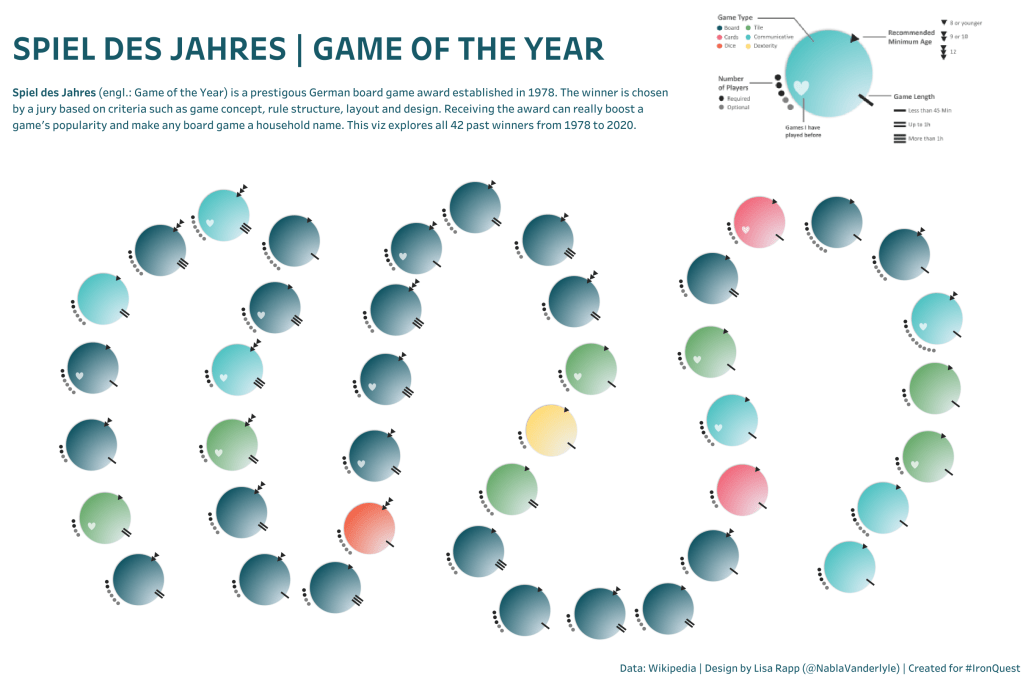
After Feedback:

All Submissions
THANK YOU to everyone who submitted entries for taking the time to create and share your work! Also, a big thank you to Kevin for being a fantastic co-host.
All of the entries are posted below in alphabetical order by first name (note: the placement of some vizzes have been adjusted slightly for ease of viewing). Again, I have split this section into two; the first focuses on games built in Tableau and the second includes vizzes on the topic of games.
If you tweeted your viz or thought you submitted one via the Google Form but don’t see it here, let me know and I’ll work to include any additional entries ASAP.
Playable Games
Adrian Zinovei – Card Tricks

Alex T. Williams – Tic-Tac-Toe
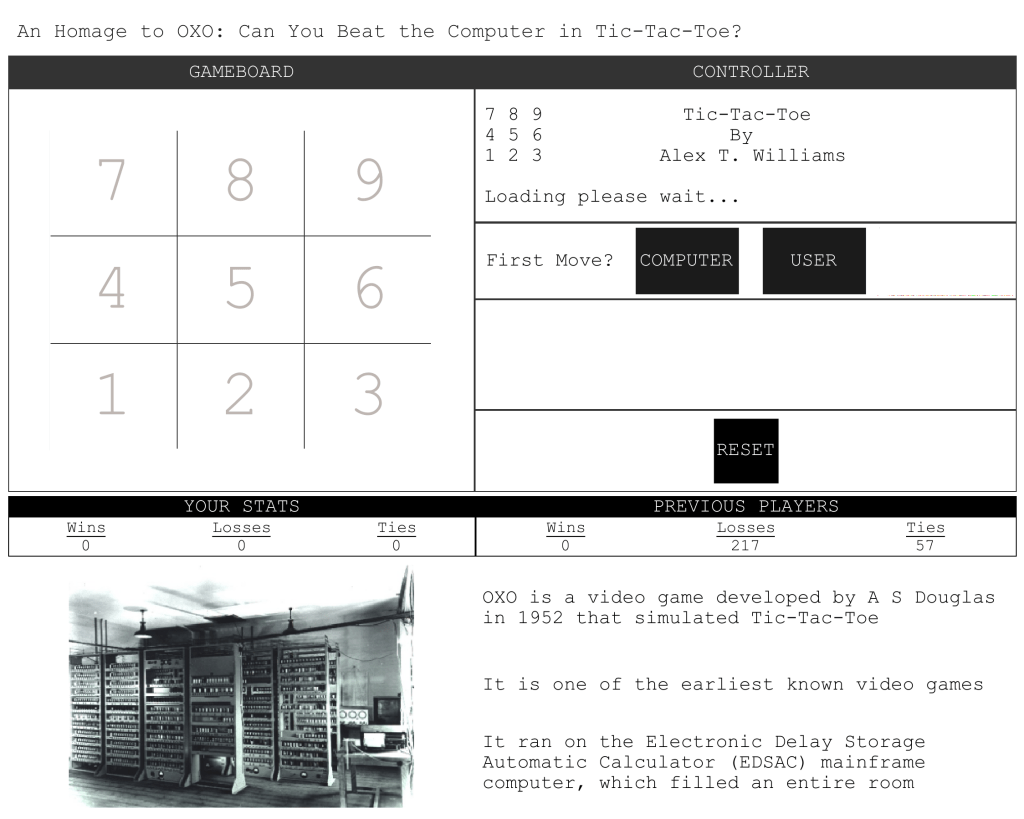
Ant Pulley – Happy Mario Day!
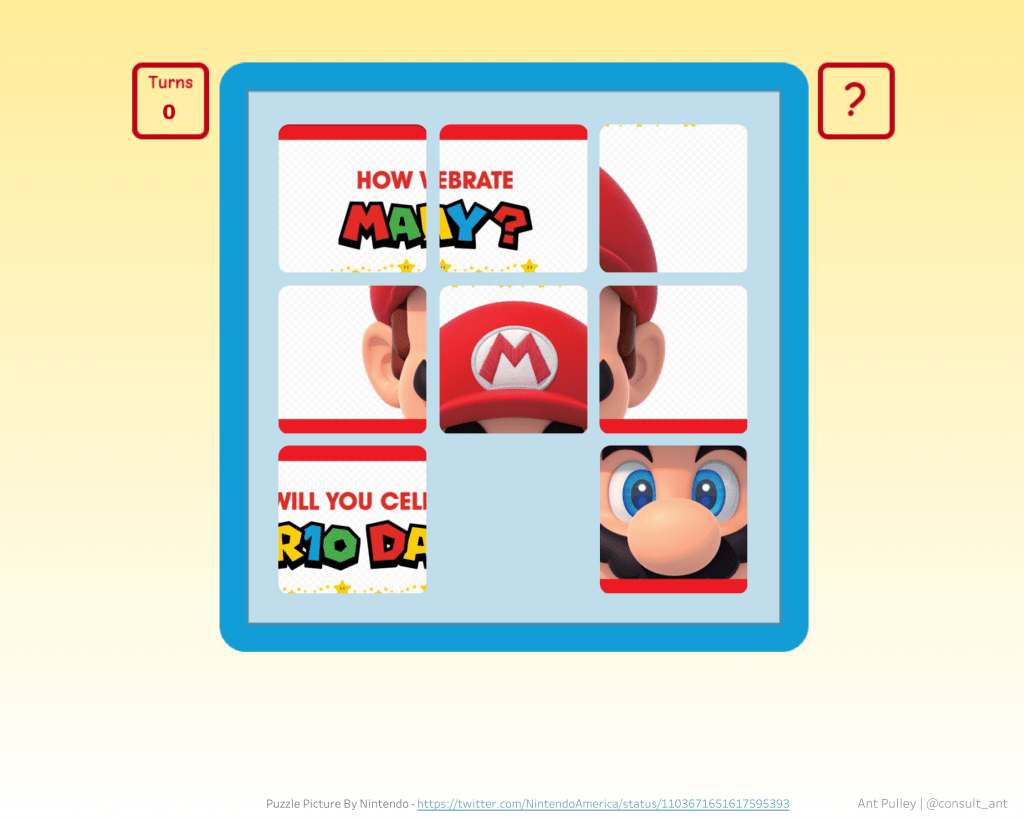
Gary Collins – Tableau Darts

Jacqui Moore – Nellie Bly: Around the World

Mateusz Karmalski – Duck Hunt


Matthew Armstrong – Escape the Library

Roy Wang – Flag Game – South America
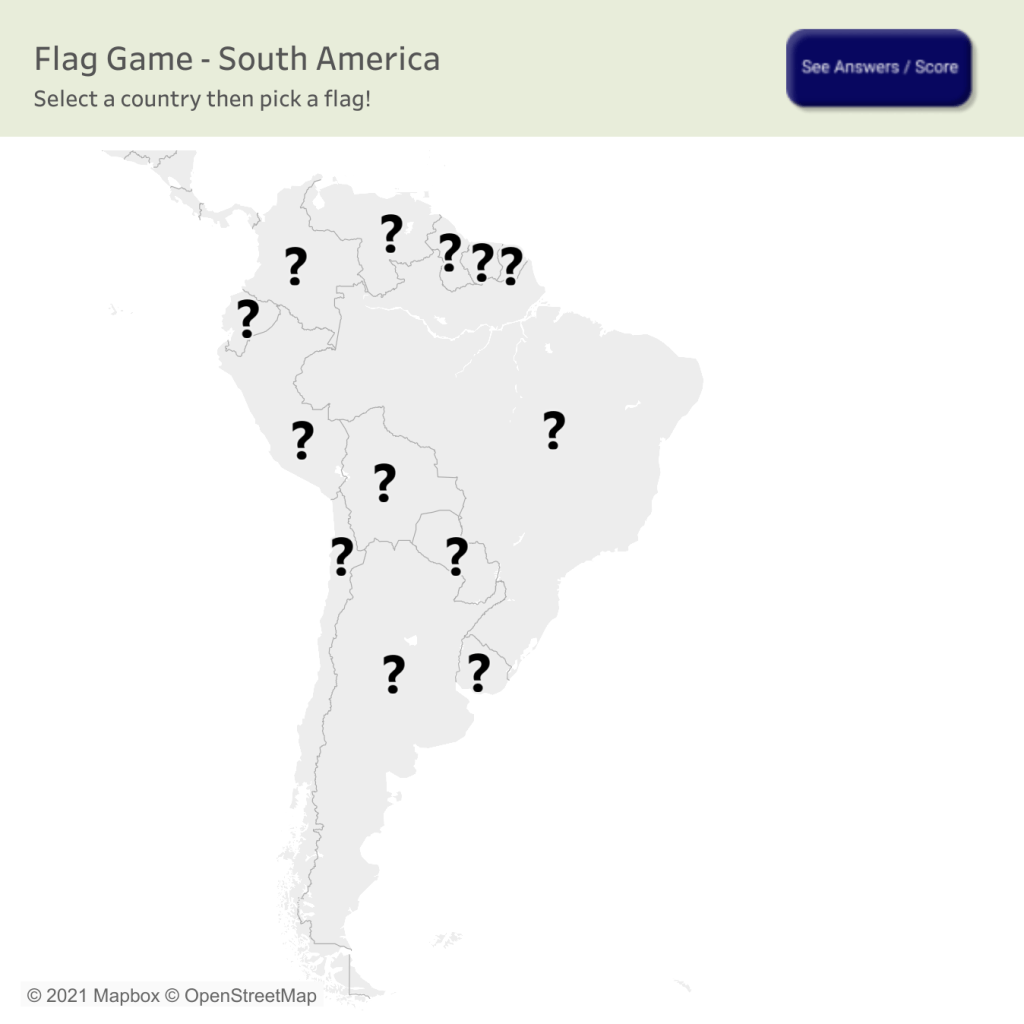
Tim Beard – Hangman!
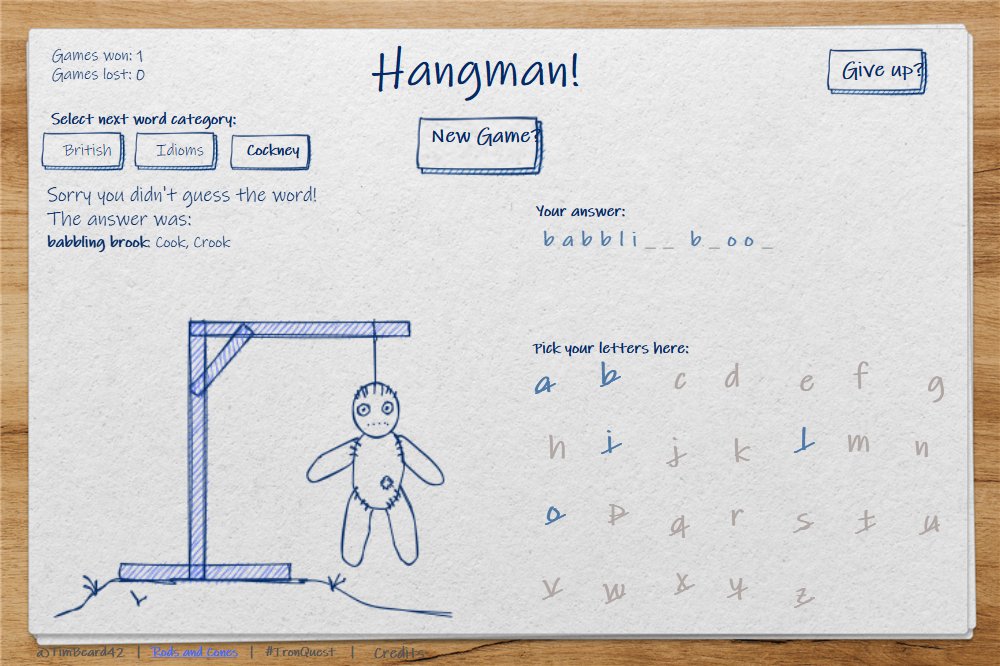
Virginia Moench – Can You Guess the Location?

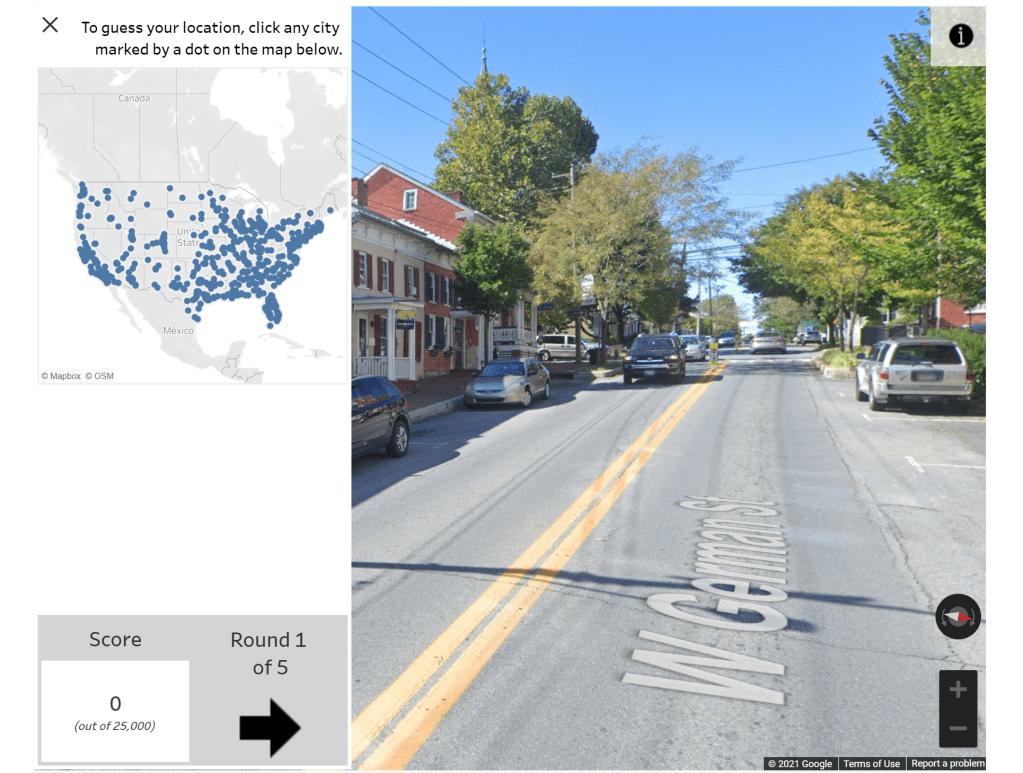
Wendy Shijia – Island Shape Quiz


Yash Sakhuja – The Rock-Paper-Scissors-Lizard-Spock Game

Vizzes About Games
Andrew Starr – Monopoly – What Would the London Board Look Like Today?

David Sanchez – Tetris – The Soviet Mind Game
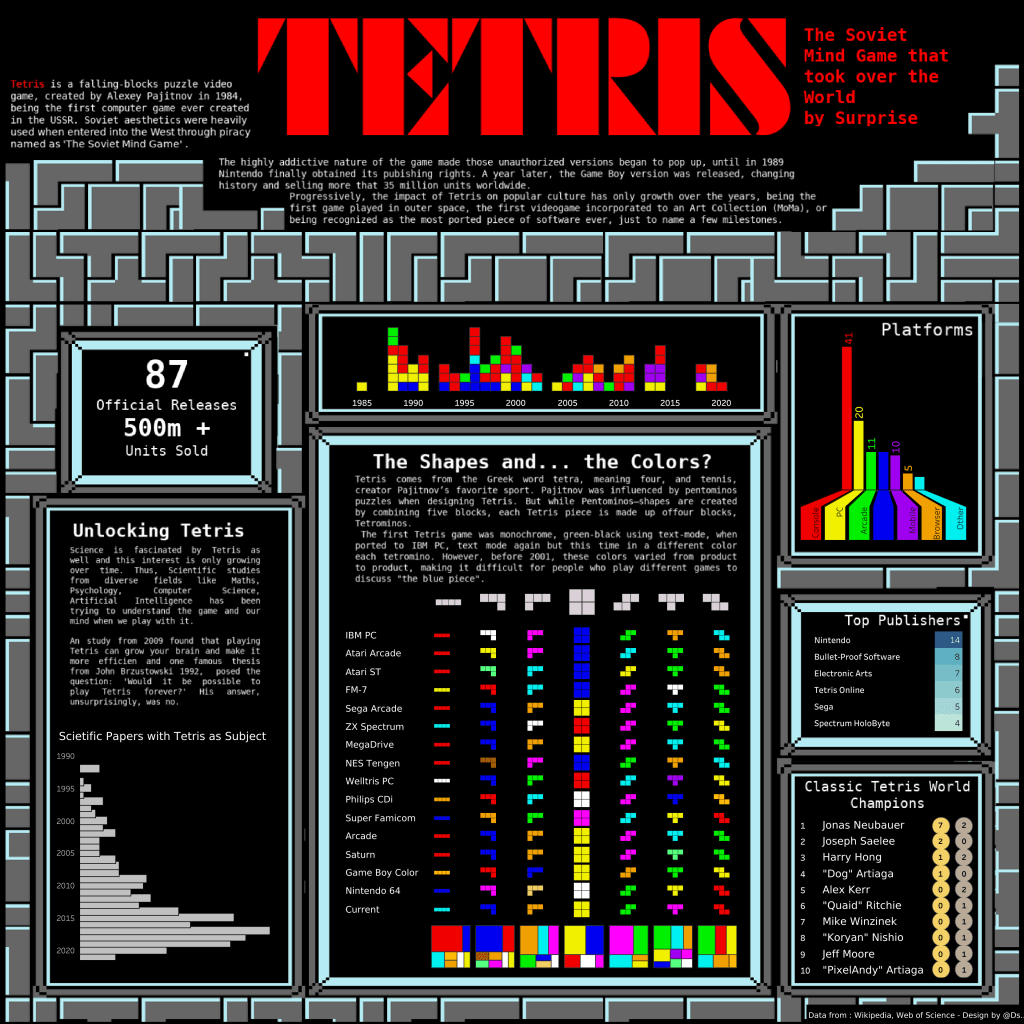
Jagruthi – Olympic Medals

Jeff Platter and Sam Epley – March Madness Greatest Players Fantasy Challenge

Jenny Martin – Crib Scorecard

Jonathan Phelps – Welcome to Super Mario Kart!

Joshua Preston – Critics vs Gamers: Best Games of 2020
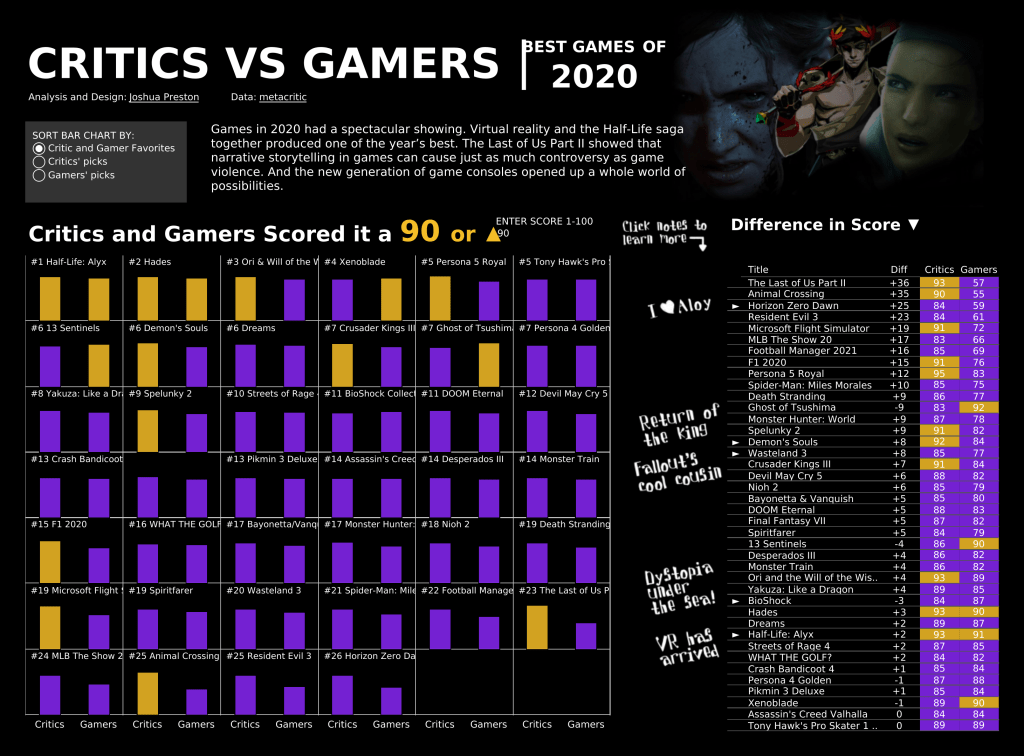
Kalon White – FIFA 21 Pro Clubs

Kevin Flerlage – NBA Jam – He’s on Fire!
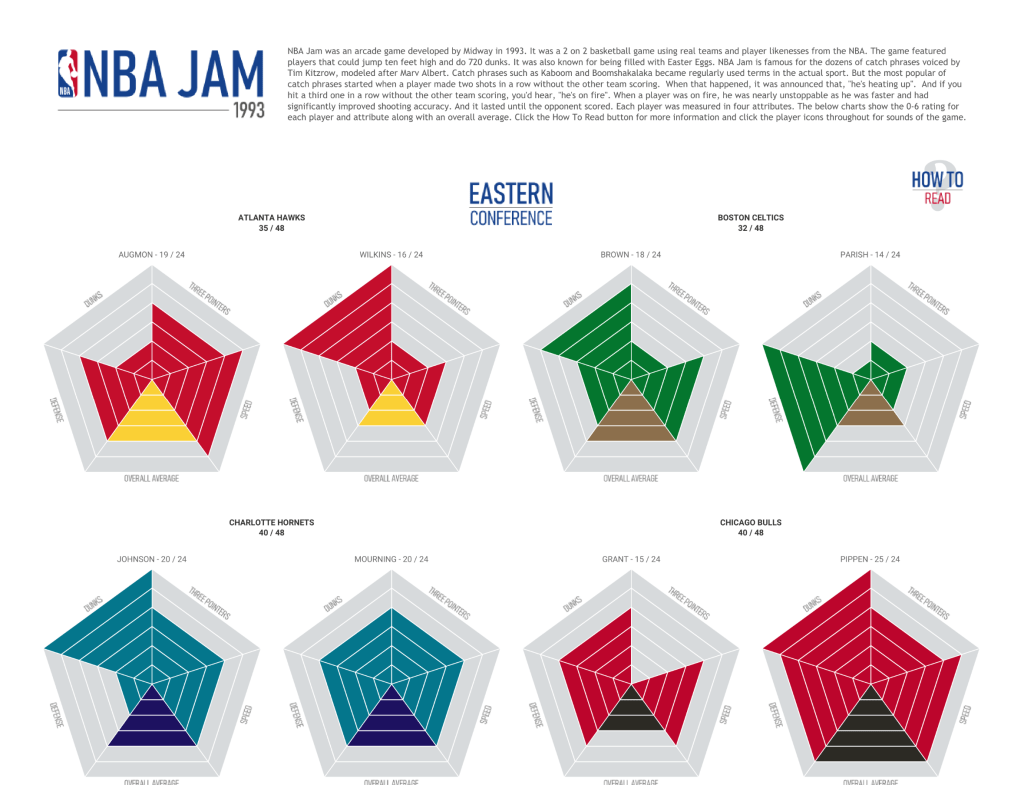
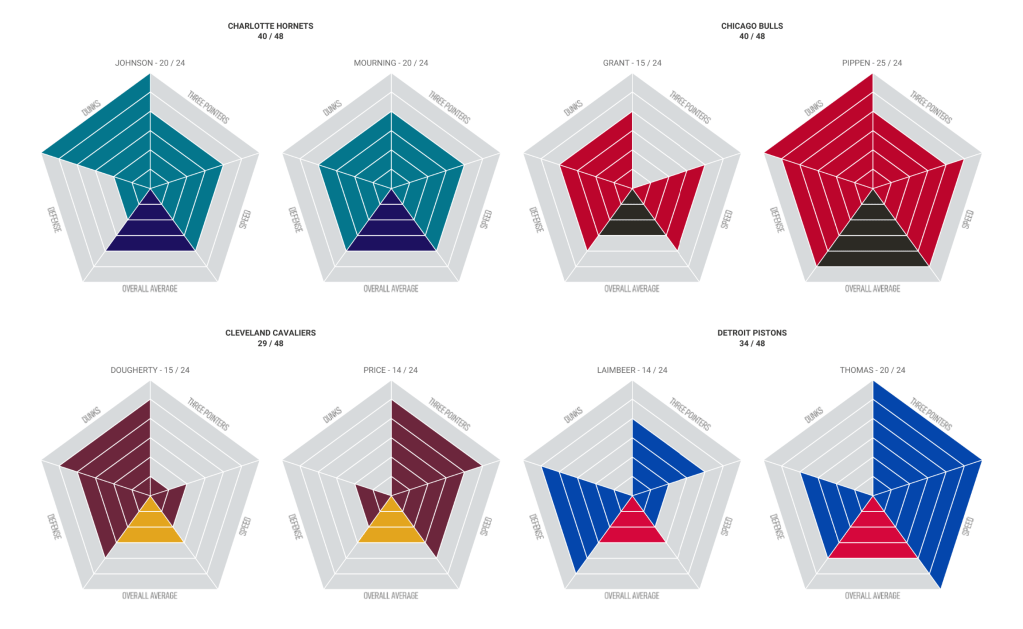
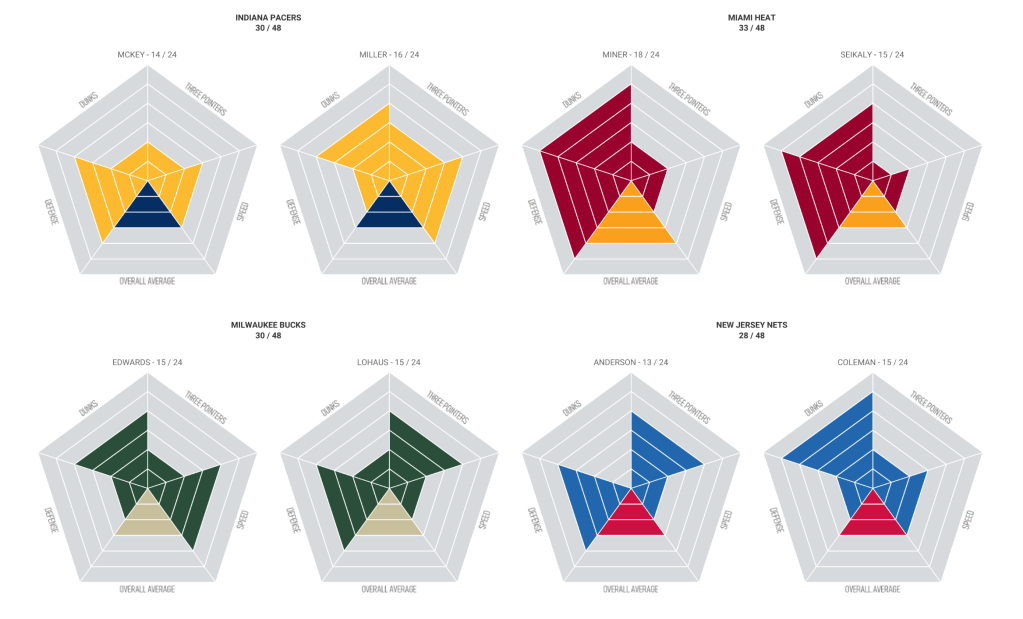
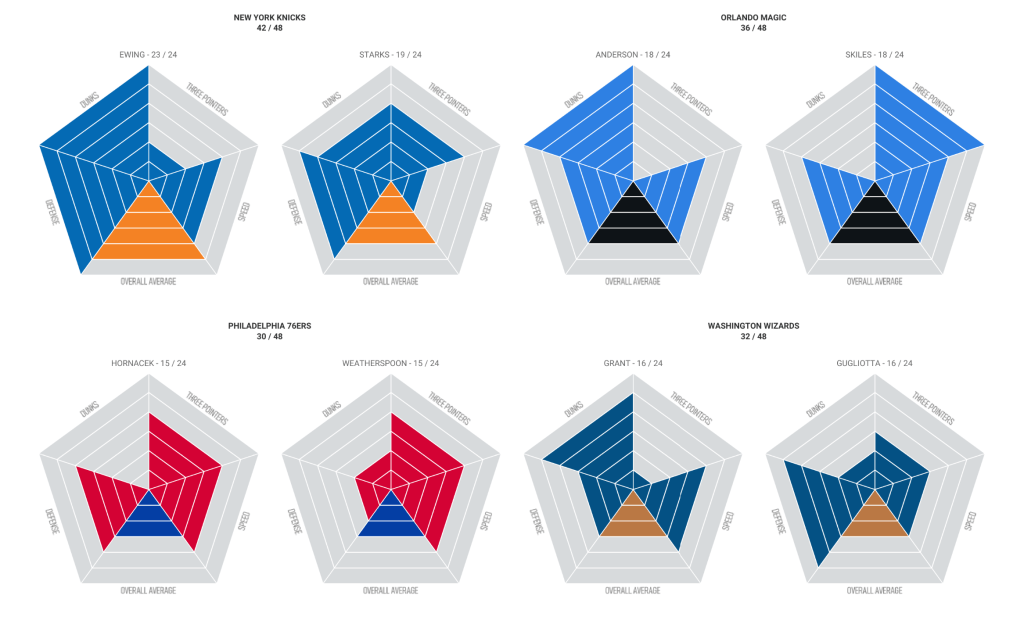
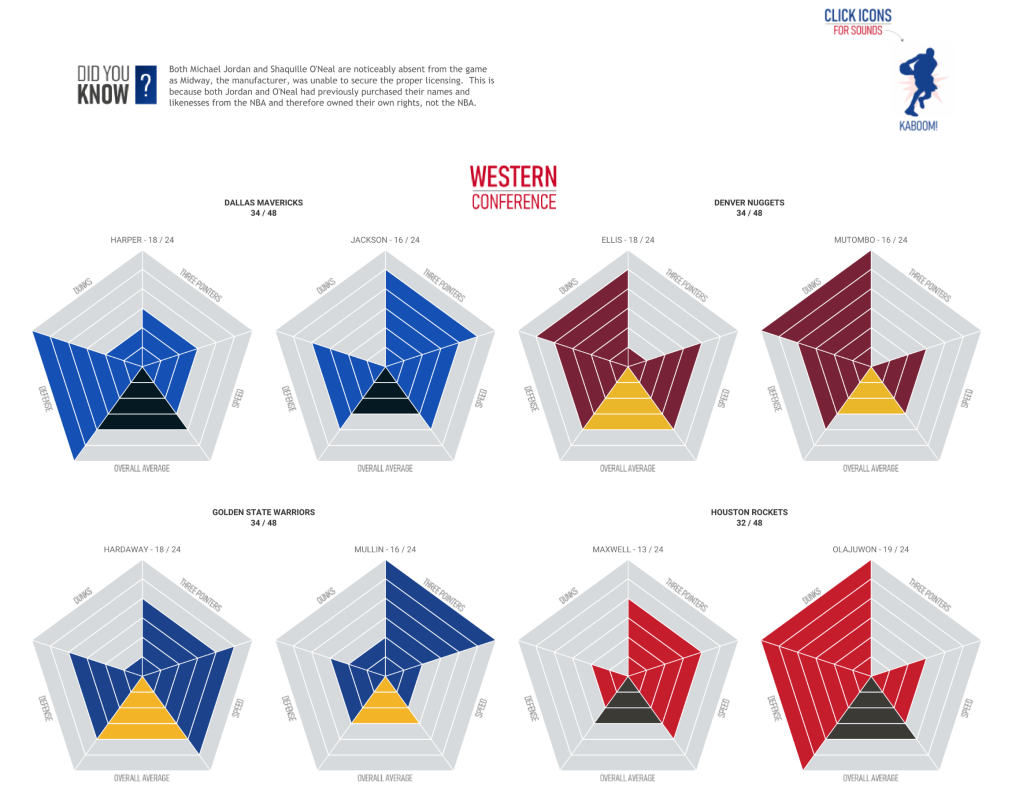





Lilla Rasztik – Disguised Toast Playing as an Impostor in Among Us
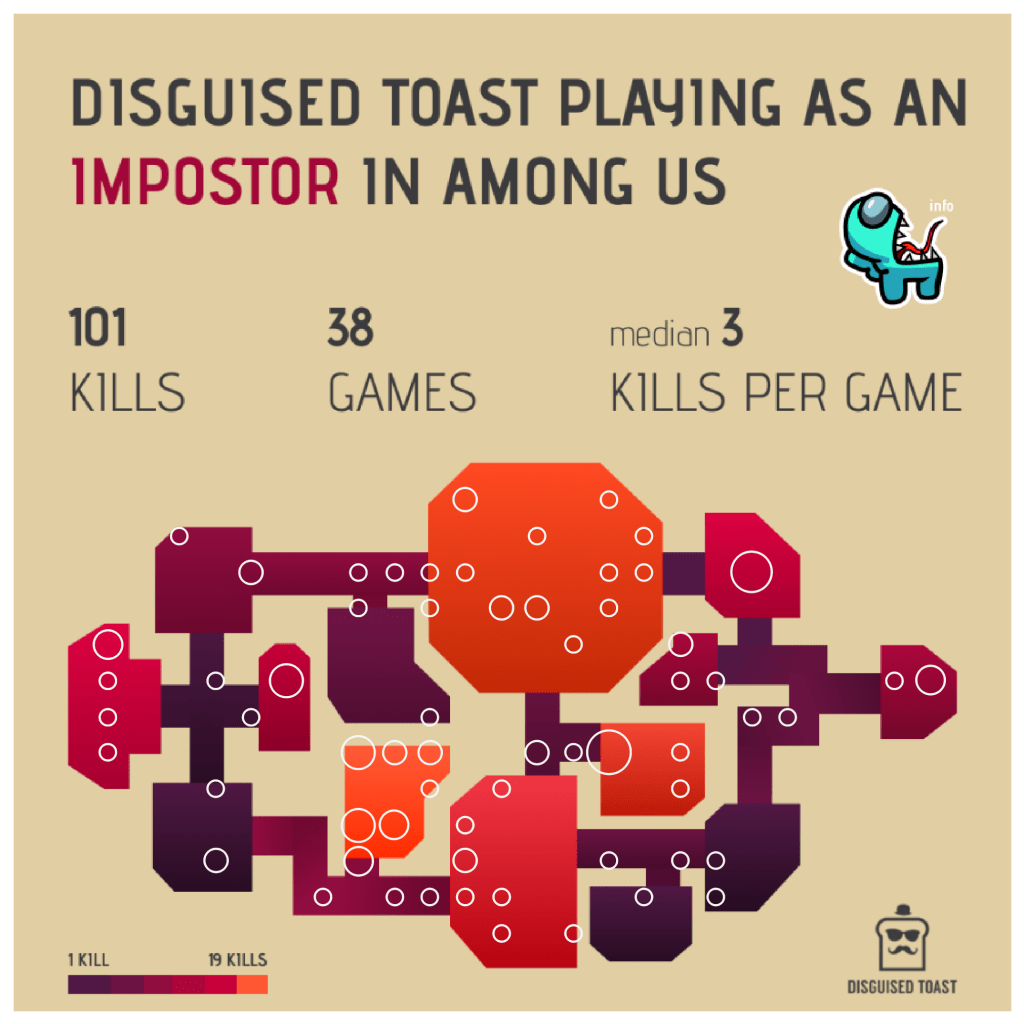
Lisa Rapp – Game of the Year | Spiel des Jahres

Lisa Trescott – Wheel of Fortune
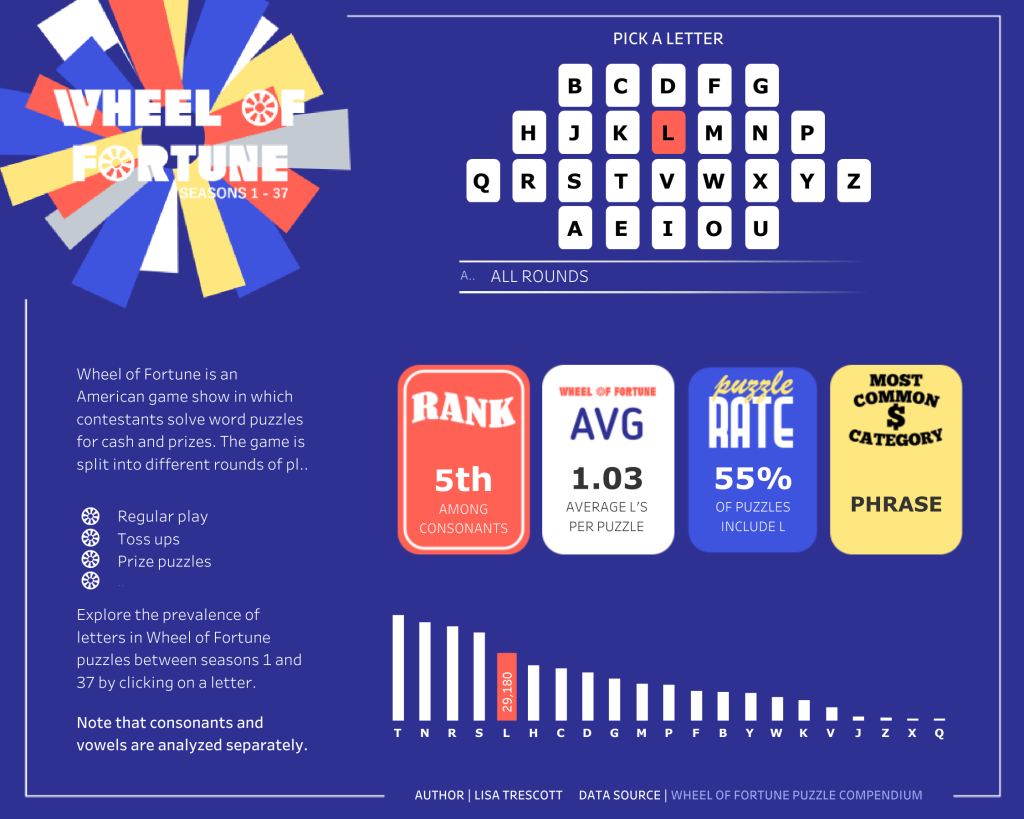
Mark Corbridge – Boardgame Optimisation Bot

Márton Balla – 2020 in Video Games

Nicole Klassen – Board Game Selection

Robert William Clark – 7 Wonders with the Clark Family
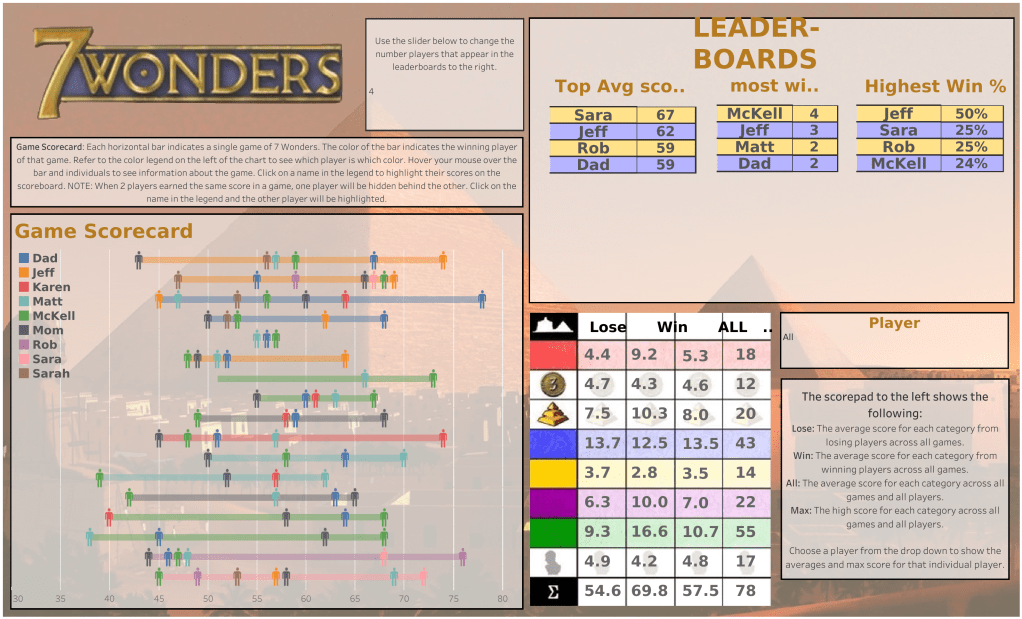
Will Sutton – Life Expectancy in Chess

Yeo Jun Yan – Pokemon Original 151

To stay up to date with all things #IronQuest, follow the hashtag #IronQuest on Twitter and LinkedIn, and check out the Iron Quest section on my blog for details of the latest projects.
Thanks for reading.
